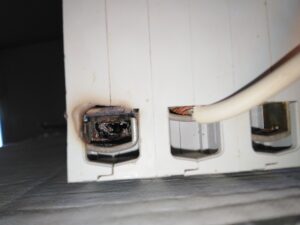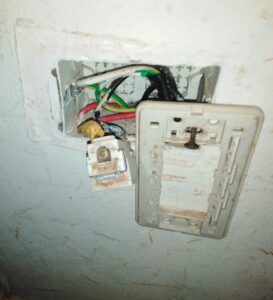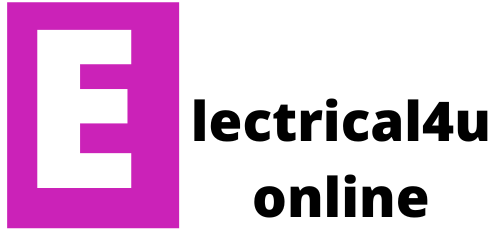Table of Contents
Are home inspections worth it?

Yes, home inspections are generally worth it, and they can be a crucial step in the home-buying process. Here are several reasons why:
- Identifying Issues: A professional home inspection can reveal hidden problems or potential issues with the property that may not be apparent during a casual viewing. This includes issues with the foundation, roof, plumbing, electrical systems, and more.
- Negotiation Power: If the inspection reveals issues, you can use this information to negotiate with the seller. You may be able to ask for repairs, a price reduction, or other concessions based on the inspection report.
- Budget Planning: Knowing about potential repairs or replacements can help you budget for future expenses. It allows you to make informed decisions about whether you can afford the property in the long run.
- Safety Concerns: Home inspections can uncover safety hazards such as mold, radon, or faulty wiring, helping you make an informed decision about whether the property is a safe place to live.
- Peace of Mind: Even if the inspection doesn’t uncover major issues, it provides peace of mind for the buyer. It confirms that the property is in good condition and helps build confidence in your purchase.
- Future Planning: The inspection report can serve as a guide for future maintenance and repairs. It provides a snapshot of the home’s current condition, helping you plan for necessary improvements over time.
While home inspections do come with a cost, the potential benefits far outweigh the expense. Keep in mind that not all inspections will uncover major issues, and some may only reveal minor issues that are easily addressed.
However, having a professional inspect the property is a prudent and proactive measure for anyone considering a real estate transaction.
Why do you need an electrical inspection?
Electrical inspections are essential for several reasons, primarily focused on ensuring the safety and functionality of a property’s electrical systems. Here are some key reasons why you might need an electrical inspection:
- Safety: The primary concern is ensuring the safety of the occupants and the property. Electrical inspections help identify potential fire hazards, faulty wiring, and other safety issues that could pose risks to the occupants.
- Code Compliance: Electrical systems must comply with local building codes and regulations. An inspection ensures that the electrical work in a property meets these standards. Compliance is important for both safety and legal reasons.
- Preventing Fire Hazards: Faulty electrical systems are a common cause of house fires. An inspection can identify issues such as overloaded circuits, outdated wiring, or faulty connections that could lead to a fire if not addressed.
- Home Purchase or Sale: During a real estate transaction, it’s common for buyers to request an electrical inspection as part of the overall home inspection process. Sellers may also opt for a pre-listing inspection to identify and address any electrical issues before putting the property on the market.
- Renovations or Upgrades: If you are planning to make significant renovations or upgrades to your home, especially those involving electrical work, an inspection ensures that the new installations comply with safety standards and local codes.
- Insurance Requirements: Some insurance companies may require an electrical inspection before providing coverage for a property. This is particularly true for older homes or properties with a history of electrical problems.
- Appliance Upgrades: When adding new appliances or making changes to the electrical load in a home, an inspection can help ensure that the existing electrical system can handle the increased demand.
- Peace of Mind: Regular electrical inspections offer peace of mind to homeowners. Knowing that your electrical systems are in good condition and comply with safety standards reduces the risk of unexpected issues and improves overall home safety.
It’s important to note that electrical inspections should be conducted by qualified and licensed professionals.
They have the expertise to identify potential issues and can provide recommendations for necessary repairs or upgrades to ensure the safety and functionality of the electrical systems in a property.
What do electrical inspectors look for?
Electrical inspectors examine various aspects of a property’s electrical systems to ensure they are safe, compliant with regulations, and functional. Here are some common elements that electrical inspectors typically look for during an inspection:
- Wiring and Connections:
- Inspectors check for the presence of proper wiring materials.
- They ensure that the wiring is appropriately sized for the load it carries.
- Inspectors look for signs of wear, damage, or deterioration in wiring insulation.
- Verify that all connections are secure and properly terminated.
- Electrical Panels:
- Check the electrical panel for compliance with local codes.
- Ensure that circuit breakers or fuses are correctly sized for the connected circuits.
- Confirm that there are no double-tapped breakers (more than one wire connected to a single breaker).
- Check for the presence of appropriate labels and documentation.
- Grounding and Bonding:
- Inspectors ensure that the electrical system is properly grounded.
- Verify the presence of grounding electrodes, grounding conductors, and bonding jumpers.
- Check for proper bonding of metal components such as water pipes and gas lines.
- Outlets and Switches:
- Ensure that outlets and switches are correctly wired and properly grounded.
- Check for the presence of Ground Fault Circuit Interrupter (GFCI) protection in appropriate locations, such as kitchens and bathrooms.
- Lighting Fixtures:
- Inspect lighting fixtures to ensure they are properly installed and meet safety standards.
- Confirm that the wattage of bulbs used is within the fixture’s rating.
- Appliances and Equipment:
- Verify the proper installation of appliances and electrical equipment.
- Check for any visible signs of damage or wear.
- Code Compliance:
- Confirm that all electrical work complies with local building codes and regulations.
- Identify any violations or areas that need correction to meet safety standards.
- Safety Devices:
- Ensure the presence and proper functioning of smoke detectors and carbon monoxide detectors.
- Check for the correct installation of surge protectors.
- Specialty Systems:
- Inspect special electrical systems, such as solar panels or generators, for proper installation and compliance with codes.
- Overall System Functionality:
- Inspectors may conduct tests to ensure that the entire electrical system is functioning as intended.
After the inspection, the inspector typically provides a detailed report outlining any issues found, along with recommendations for corrections.
Homeowners need to address any identified issues promptly to ensure the safety and compliance of their electrical systems.
Read also my article on my other site: Loose Wires, How They Impact Your Appliances.
What should I look for when inspecting an electric panel?
Inspecting an electrical panel is an important aspect of ensuring the safety and functionality of your home’s electrical system. Here are key things to look for when inspecting an electric panel:
- Circuit Breakers or Fuses:
- Check that each circuit has a properly sized circuit breaker or fuse. The amperage rating should match the wire size and the connected devices.
- Ensure there are no double-tapped breakers (two wires connected to a single breaker), as this can lead to overheating.
- Labeling:
- Verify that the panel is properly labeled, indicating which breaker corresponds to each area or appliance in the house. Clear labeling makes it easier to identify circuits during troubleshooting or maintenance.
- Panel Cover:
- Ensure the panel cover is in place and securely fastened. The cover protects against accidental contact with live electrical components.
- Wiring Condition:
- Inspect the wiring inside the panel for any signs of damage, wear, or overheating. Replace any damaged wires promptly.
- Look for any signs of burnt or melted insulation, which could indicate a past or ongoing issue.
- Grounding and Bonding:
- Confirm that the panel is properly grounded and bonded. This includes checking for the presence of a grounding electrode and ensuring that the panel is bonded to the grounding system.
- Arc Fault Circuit Interrupters (AFCIs) and Ground Fault Circuit Interrupters (GFCIs):
- Identify whether the panel is equipped with AFCIs and GFCIs, especially in areas where they are required by code (such as bedrooms for AFCIs and bathrooms for GFCIs).
- Make sure these devices are functioning properly by testing them regularly.
- Panel Age and Type:
- Note the age and type of the panel. Older panels, such as those with Federal Pacific Electric (FPE) or Zinsco components, may be considered outdated and potentially unsafe. Consult with a qualified electrician if you have concerns about the panel’s safety.
- Overcurrent Protection:
- Check that the circuit breakers or fuses provide proper overcurrent protection for the connected circuits. This protects against electrical fires caused by overloaded circuits.
- Space for Expansion:
- Assess whether there is sufficient space in the panel for future additions or renovations. If the panel is nearing capacity, it might be necessary to upgrade to a larger panel.
- Professional Inspection:
- Consider having a licensed electrician conduct a more thorough inspection. Professionals have the expertise to identify potential issues that may not be apparent to the untrained eye.
If you notice any issues or if you are uncertain about the condition of your electrical panel, it’s advisable to consult with a licensed electrician.
Electrical work should be handled by qualified professionals to ensure the safety and compliance of your home’s electrical system.
How do you inspect a house’s wiring?

Inspecting a house’s wiring is an important step in ensuring the safety and functionality of the electrical system. While a comprehensive inspection is best conducted by a licensed electrician, here are some general guidelines for inspecting a house’s wiring:
- Check the Panel:
- Verify that the electrical panel is properly labeled with each circuit’s corresponding area or appliance.
- Ensure that circuit breakers or fuses are of the correct amperage for the connected wires and devices.
- Inspect Wiring Types:
- Identify the types of wiring used in the house. Common types include Romex (non-metallic sheathed cable), BX (armored cable), and knob-and-tube wiring. Each has different considerations and potential issues.
- Look for Damaged Insulation:
- Inspect visible wiring for any signs of damaged or frayed insulation. Damaged insulation can expose wires, increasing the risk of electrical shock or fire.
- Check Outlets and Switches:
- Ensure that outlets and switches are securely mounted to the wall.
- Test outlets with a voltage tester to ensure proper wiring and functioning.
- Look for signs of discoloration or scorch marks around outlets or switches, which may indicate overheating.
- Test Ground Fault Circuit Interrupters (GFCIs) and Arc Fault Circuit Interrupters (AFCIs):
- Test GFCIs and AFCIs to ensure they trip properly. These devices enhance electrical safety by detecting faults and preventing electrical shocks or fires.
- Inspect Light Fixtures:
- Check light fixtures for proper installation and secure wiring.
- Confirm that the bulbs used match the fixture’s wattage rating.
- Evaluate Wiring in the Attic and Basement:
- If accessible, inspect the wiring in the attic and basement. Look for signs of rodent damage, exposed wires, or improper splices.
- Check for DIY Wiring:
- Look for any evidence of do-it-yourself (DIY) wiring projects. Improperly installed or modified wiring can pose serious safety hazards.
- Assess Wiring Age:
- Consider the age of the wiring. Older homes may have outdated wiring systems that could pose safety concerns. Knob-and-tube wiring, for example, is considered obsolete and may need upgrading.
- Test Grounding:
- Verify that the electrical system is properly grounded. Grounding is essential for safety and helps prevent electrical shocks.
- Consult a Professional:
- If you have any doubts or concerns, it’s advisable to hire a licensed electrician for a more thorough inspection. Professionals have the knowledge and tools to identify hidden issues and ensure compliance with safety standards.
Keep in mind that electrical work can be hazardous, and it’s crucial to prioritize safety. If you’re not comfortable or experienced in electrical inspections, it’s always best to seek the assistance of a qualified professional.
Regular inspections can help identify and address potential issues before they become serious safety hazards.
Don’t Leave Empty-Handed!
Install my Free Android App on Google Play:
Electrical Cables Most Common Tables “Cables Tables”
And, my Electrical Calculations App “Fast Electrical Calculator”
Discover more great content by subscribing to My channel
Looking to stay ahead of the game in the world of electrical engineering? Subscribe to my YouTube channel and gain access to exclusive content you won’t find anywhere else!
The staff I recommend
(Amazon Affiliate Links to products I believe are high quality):
- Economy 120 Volt/60Hz AC Power Source – Step-Down Voltage & Frequency Converters 1800W
- UNI-T Digital Multimeter Tester UT139C
- 50-Amp Extension Cord for RV “100ft”
- Voltage Stabilizer 110/220v
- Hair Dryer “best selling“
- TOSHIBA EM131A5C-BS Countertop Microwave Ovens
Disclaimer: This contains affiliate links to Amazon products. I may earn a commission for purchases made through these links.
